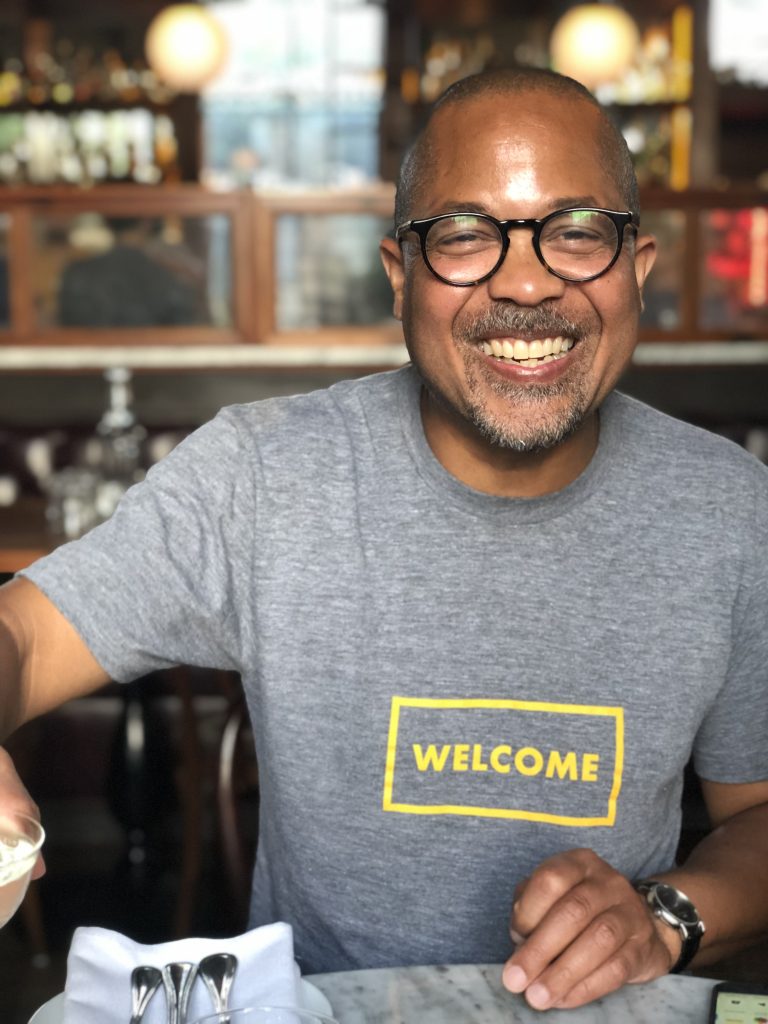 Gary Obligacion is bringing his passion for hospitality back to Aspen this weekend.
Gary Obligacion is bringing his passion for hospitality back to Aspen this weekend.
Photo credit
Gary Obligacion, vice president of food and beverage for Aparium Hotel Group and board member for Wine Unified, has had a long and rewarding career in the hospitality industry, and this weekend he’ll be bringing his expertise to the Aspen Food and Wine Classic, speaking on two panels with restaurateur and master sommelier Sabato Sagaria: “Just Laid Back: The World’s Best Chilled Red Wines” and “Big Talk and Cocktails.”
“In the food and beverage industry, no two days are the same, and no two days are the same in hospitality,” Obligación says, “and that variety is exhilarating. You can’t imagine doing the same process every time and getting the same results. That’s where the magic is.”
He got a head start in hospitality with his first job at Alice Waters’ groundbreaking Northern California restaurant, Chez Panisse, in 1984. One of his duties there was making salads, and he reflected on his exposure to ingredients he’d never seen or heard of before, like mezuna and arugula, and how much the industry has changed in the past 40 years.
“I’d pick up a handful of what looked like a weed and think, ‘What on earth is that?'” he said, laughing. “No one knew what it was, or how to eat it. Today, things have changed because consumers are educated and have access to a lot more information. And with that change, the old rules no longer apply.”
In that spirit, he’ll be speaking on “The World’s Best Chilled Red Wines” in River Tent 2 on Friday and Saturday from 10 to 11 a.m.
“The rules have been scrapped,” he said.
This applies especially to the food you pair your wine with, and to the temperature of your red and white wines in general: drinking white wine too cold and red wine too warm can also have a negative effect on the wine.
“We put white wine in the fridge, and it gets ice cold, which most people think is the natural coldness, but it doesn’t give you the depth of flavor you get from a white wine,” he elaborated, “and we warm the red wine too much, and then you taste the alcohol and everything becomes unbalanced. In fact, the wines in the cellar, both white and red, are probably at just the right temperature.”
Obligacion said his love of food was discovered as a child growing up in Los Angeles thanks to his mother. His parents divorced when he was one year old, and he was raised by his mother. As an only child, he was very close to both parents. His mother loved to cook, but also had an adventurous palate for the time, and would always take him out to eat and discover new and interesting dishes.
“She was a great cook and I was like her sous chef,” he says. “We were always traveling and experiencing different things. I remember going to Chinatown when I was four years old, to a proper restaurant where no one spoke English. Or we went for sushi in the early ’70s because she wanted to eat sushi. So I was always exposed to food, even though I never considered myself a foodie.”
He first visited the Aspen Classic around 2007-2008 while working for Coastal Luxury Management, which produced Pebble Beach Food & Wine, and says he was immediately impressed with how well-run the event was even back then. For many years, he contributed from the rear on the management team and was reluctant to sit on panels, but that has since changed.
“I was finally persuaded to do it last year,” he says. “I sat on a panel with Sabato and it was so much fun, and the audience loved it, so we were given the role of talent last year and again this year. I don’t know how long it’ll last, but I’m going to enjoy it.”
In addition to his involvement with Food & Wine, he and Aparium are gearing up for the June opening of Hotel Heron in Alexandria, Virginia, and the Populous Hotel in Denver in late summer. These projects include exciting food and beverage programs that he’s looking forward to sharing with the public in a time when everything is becoming more upscale.
“I’m happy to see restaurants getting better and better. Chefs and other people understand that because consumers are educated, restaurants have to improve everything: the food they put on the plate, the service they offer, their wine lists, their cocktail programs. Everything has to improve,” he said. “All boats are floating.”


